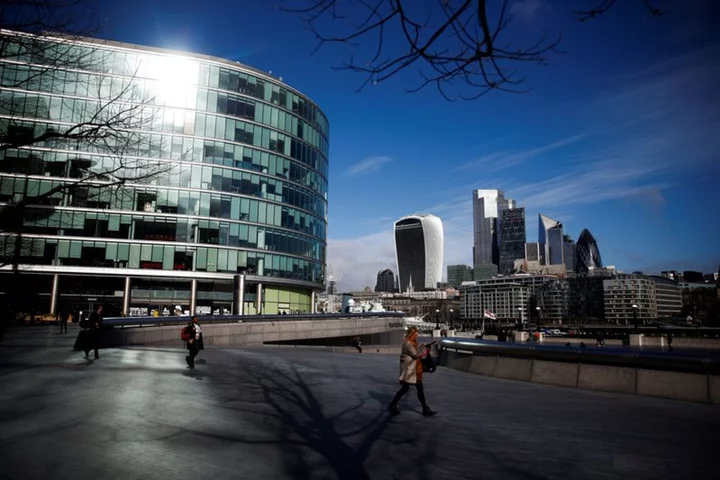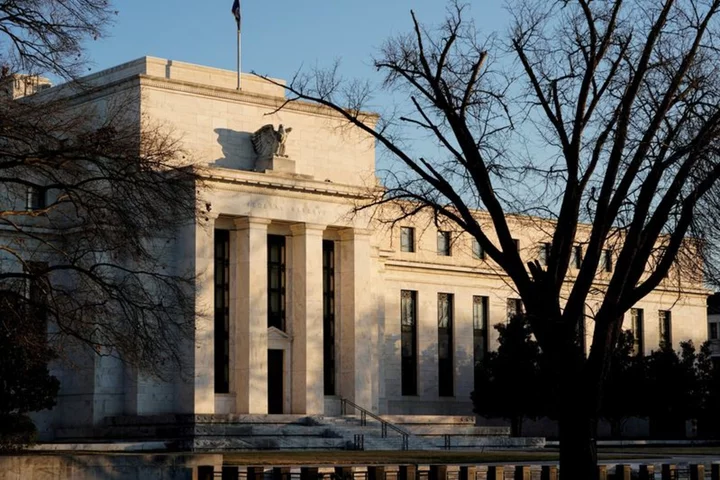By Jonathan Cable
LONDON Global business activity largely slowed further last month as services firms struggled in the face of weak demand as rising prices and borrowing costs made indebted consumer rein in spending, a raft of surveys showed on Tuesday.
In the euro zone, the picture was gloomier than initially thought as the bloc's dominant services industry fell into contractionary territory, suggesting the bloc could slide into recession.
Germany's services sector contracted for the first time this year and France's shrank more than first estimated. In Britain, outside the European Union, its survey showed the sharpest business slowdown in seven months.
Asia's surveys for August were also more downbeat with China's services activity expanding at the slowest pace in eight months as weak demand continued to dog the world's second-largest economy while in India growth lost some steam.
Japan proved an outlier as service sector activity expanded there at its quickest pace in three months, underpinned by robust consumer spending as inbound tourism regained momentum.
Global equities fell on Tuesday as the weak readings rekindled worries over China's sputtering post-pandemic economy.
"Weaker economic data out of Asia was the main driver of market sentiment," noted economists at RBC.
HCOB's final euro zone Composite Purchasing Managers' Index (PMI), compiled by S&P Global and seen as a good barometer of overall economic health, dropped to 46.7 in August from July's 48.6, a low not seen since November 2020.
That was below the 50 mark separating growth from contraction for a third month and weaker than a preliminary estimate for 47.0.
Tuesday's figures point to a 0.1% contraction in euro zone gross domestic product this quarter, S&P Global said.
"The final PMIs published today were revised down from the already-low levels reported in the flash measure two weeks ago. We continue to forecast a recession in the second half of the year," said Adrian Prettejohn at Capital Economics.
The headline services PMI for the bloc sank to 47.9 from 50.9, below the flash 48.3 estimate, as the new business index, a gauge of demand, dropped further below breakeven to 46.7 from 48.2, a low not seen since early 2021.
Still, the downturn in manufacturing eased last month, suggesting the worst may be over for the bloc's beleaguered factories, a sister survey showed on Friday.
Services PMI readings for Britain, Germany, France, Italy and Spain were all below breakeven.
"August's services PMI pointed to a contraction in UK private sector activity. The EY ITEM Club still thinks GDP is likely to grow modestly in Q3 ... but today's evidence of a decline in new orders suggests that the long-term outlook is gloomy," said Martin Beck, chief economic advisor to the EY ITEM Club forecasting group.
ASIAN PAIN
China's Caixin/S&P Global services PMI dropped to 51.8 in August from 54.1 in July, the lowest reading since December when COVID-19 confined many consumers to their homes.
The data broadly aligned with the official services PMI released last week, which showed the sector continued to trend downwards.
Chinese stocks fell after the survey, while optimism spurred by Beijing's latest stimulus measures also dimmed.
Overall conditions in India remained strong although its PMI dipped to 60.1 from 62.3.
Japan's PMI bucked the trend and rose to 54.3 last month from 53.8.
"The Bank of Japan will be cheered by the signs of stronger services sector employment, but worried about the persistence of cost pressure," said Duncan Wrigley at Pantheon Macroeconomics.
"The big picture, however, is that manufacturing index still points to declining activity and Japan is still a way off reaching a sustained domestic demand-driven growth path."
(Reporting by Jonathan Cable; Editing by Tomasz Janowski)









